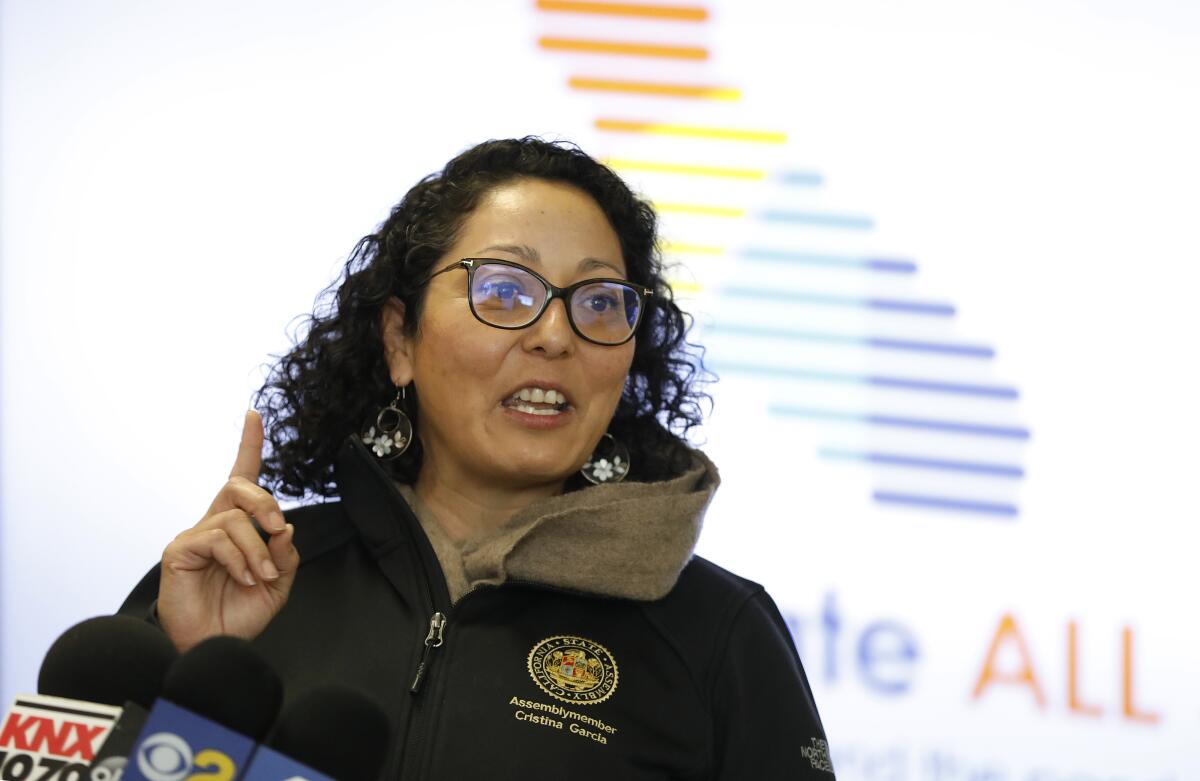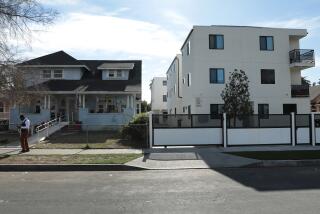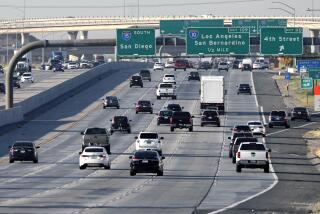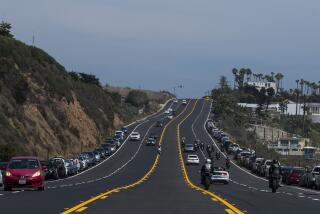Proposed state law seeks to ban freeway expansions in underserved communities

A state lawmaker from Los Angeles County plans to introduce legislation that would block freeway expansions in underserved communities across California.
Assemblywoman Cristina Garcia (D-Bell Gardens) said her bill would prohibit the state from funding or permitting highway projects in areas with high rates of pollution and poverty and where residents have suffered negative health effects from living near freeways.
She said state leaders should consider the significant evidence of racial and health disparities caused by highway construction as well as research showing that freeway widenings frequently fail to resolve traffic congestion because they induce more car trips.
“If we have the data and we have the research and we’re ignoring it, that’s when it starts to become criminal when you’re in a position of power,” Garcia said.
Garcia said the impetus for the legislation, which she plans to introduce early next year, was a recent Times investigation that documented the effects of freeway construction over the last three decades. The Times found that more than 200,000 people nationwide have been displaced because of federal road projects during that time, and that some of the country’s largest recent highway expansions have forced out residents in Black and Latino neighborhoods at disproportionately high rates.
For years, Garcia has fought efforts to widen the 710 Freeway through predominantly Latino southeastern L.A. County communities. Health problems resulting from air pollution along the existing 710 corridor have led some to refer to the area as “cancer alley.”
Less than five years ago, her brother’s real estate brokerage business was displaced to accommodate an expansion of Interstate 5 through Santa Fe Springs, part of a series of I-5 widenings in Los Angeles and Orange counties in recent decades that forced out 850 families in largely Latino neighborhoods.
The Times reporting, she said, showed that what’s been happening in her area remains a widespread concern.
“It gave me a little bit of hope that we could push for more meaningful legislation,” Garcia said.
The California bill she plans to introduce would come as federal transportation officials say that they’re taking steps to ensure that hundreds of billions in highway funding from the new $1-trillion bipartisan infrastructure law won’t exacerbate damage caused by freeways.
Biden administration officials, most prominently U.S. Department of Transportation Secretary Pete Buttigieg, have repeatedly referenced the often racist history of freeway construction from the middle of the last century. In one notorious example, highway builders in Miami paved over the heart of the city’s Black community in the 1960s, forcing tens of thousands from their homes rather than routing Interstate 95 through a nearby abandoned railway.
Speaking to the Sacramento Press Club on Thursday, Buttigieg called The Times’ findings on highway displacements in recent decades “very concerning, and something that we need to pay attention to so that these dollars are always doing good, not harm.”
Buttigieg said that the department was beefing up its civil rights division to investigate claims that planned highway expansions are racially discriminatory. Buttigieg also touted a $1-billion program newly authorized in the infrastructure law to reconnect neighborhoods already split apart by highways, even though that amount is far less than the federal dollars available for freeway expansion.
“We need to make sure that every penny of the federal money that’s going out here goes out on equitable terms and in inclusive ways,” he said.
Besides Garcia’s bill, other legislation may emerge to restrain highway construction and displacement in California. State Sen. Sydney Kamlager (D-Los Angeles) told The Times she was considering authoring a bill and pushing for funding in next year’s state budget to further compensate those forced out by freeways and make improvements, such as planting trees or beautifying overpasses, in neighborhoods divided by them.
The state should no longer be widening freeways, she said.
“We should be looking at alternative modes of transportation that can get commuters from point A to point B in a way that keeps air clean and preserves communities,” Kamlager said.
Toks Omishakin, director of the California Department of Transportation, has told The Times that additional highway expansions in the state should be seen as an “absolute final option,” and L.A. transportation officials say they’ve paused separate efforts to expand the 710 and 605 freeways — in part because plans would displace hundreds of families in Latino neighborhoods.
Garcia said she’s convinced that further state action is necessary. L.A. officials are continuing to debate the future of both freeway expansions, and in recent years Caltrans has been displacing residents to widen State Road 71 through Pomona. She said she’s concerned residents in southeastern L.A. County could be drowned out by more powerful interests that favor highway construction.
“It’s always been everything’s more important than this community,” she said. “I don’t think it’s a coincidence that it’s a working-class community, immigrant, Latino. It feels accepted in California oftentimes that folks are going to be disposable.”
Times staff writer Chris Megerian in Washington contributed to this report.









